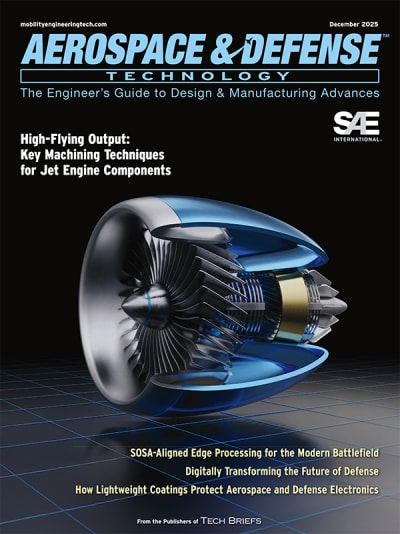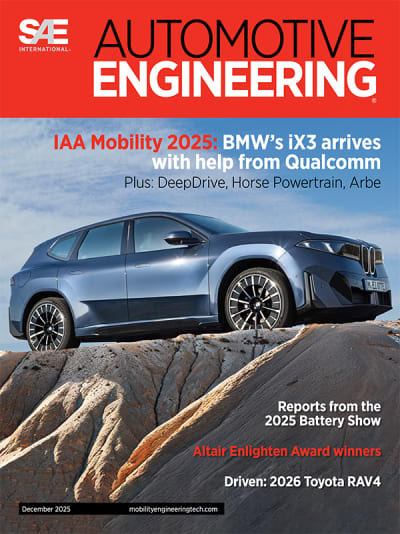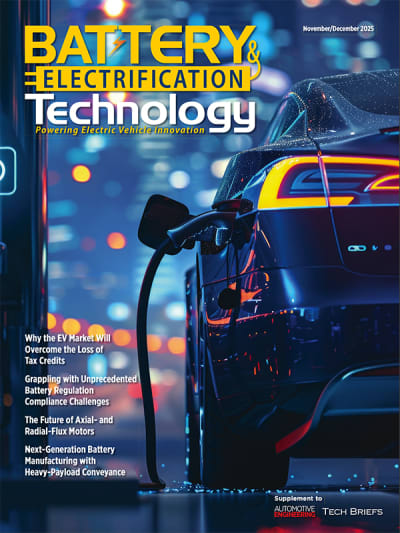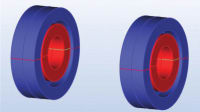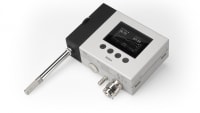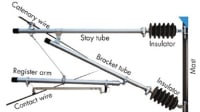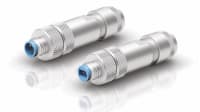Designing a Sensorless Torque Estimator for Direct Torque Control of an Induction Motor
FPGAs were used to verify the accuracy of the torque estimator.
Induction motors often are the preferred choice among industrial motors due to the modern power electronics that improve their speed control. Vitally important for the speed control of a motor is the accurate estimation of the magnetic flux and the electromagnetic torque. Knowing the electromagnetic torque of a motor, one is able to control it and thus monitor the speed faster and more stably.
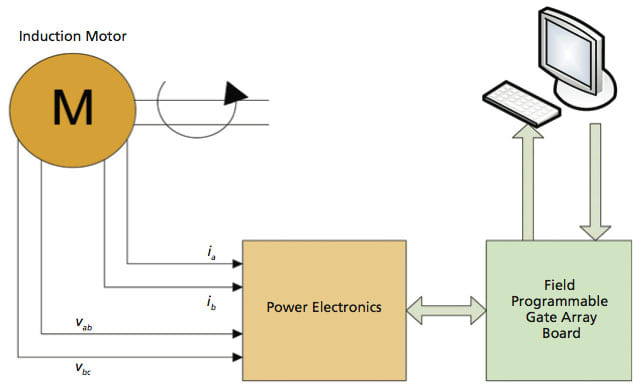
The quality and reliability of any design are proven by how well it works in a real application. The transition from an ideal case, such as computer simulation, to a real application includes factors that may have undesirable effects. The experiment of an electromagnetic torque estimator using a real induction motor is a real application that involves undesirable external noise, constant offsets at the waveforms, as well as variation in the temperature of the windings and thus in the stator resistance. Nevertheless, the analysis of the results shows that the torque estimator works very well for an induction motor at the frequency of 60 Hz. The calculated steady-state torque is very close to the electrodynamometer settings. In conclusion, at the speed of 60 Hz, the variation of the stator resistance is not dominant and does not affect the torque calculation. Finally, the numerical integration works successfully.
The designed torque estimator can be used in any application that requires the calculation of the torque of an induction motor that works at a high frequency. In fact, the calculation of the electromagnetic torque is an important step before the speed control of the motor.
This work was done by Athanasios Tsoutsas of the Naval Postgraduate School. For more information, download the Technical Support Package (free white paper) at www.defensetechbriefs.com/tsp under the Mechanics/Machinery category. NRL-0038
This Brief includes a Technical Support Package (TSP).
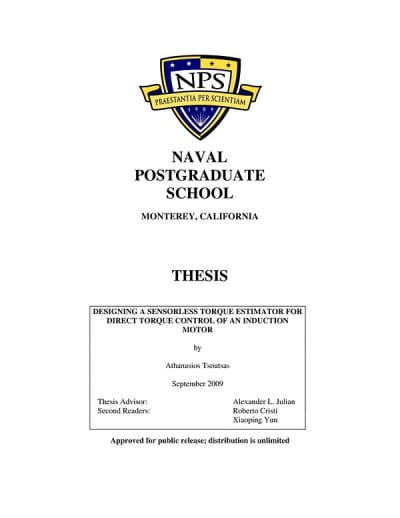
Designing a Sensorless Torque Estimator for Direct Torque Control of an Induction Motor
(reference NRL-0038) is currently available for download from the TSP library.
Don't have an account?
Overview
The document is a thesis authored by Athanasios Tsoutsas at the Naval Postgraduate School in September 2009, focusing on the development of a sensorless torque estimator for direct torque control of an induction motor. The research addresses the pressing issue of air pollution caused by transportation, proposing electric propulsion as a viable alternative to internal combustion engines.
The thesis emphasizes the need for accurate electromagnetic torque estimation and efficient control systems to enhance the performance of electric vehicles. It outlines the design and implementation of an electromagnetic torque estimator using the Simulink/Matlab environment, integrated with XILINX block sets. This approach allows for the simulation and analysis of the torque estimator's performance in a controlled environment.
A significant aspect of the research is the verification of the torque estimator's accuracy through the use of Field Programmable Gate Arrays (FPGA). The thesis details the methodology employed to ensure that the torque estimation is reliable and can be effectively utilized in real-world applications. By leveraging advanced hardware and software tools, the study draws realistic conclusions about the performance of the electromagnetic torque estimator, which is critical for the control of electric vehicles.
The document also includes a distribution statement indicating that it is approved for public release and has unlimited distribution, making it accessible for further research and development in the field of electric propulsion and motor control systems.
In summary, this thesis contributes to the growing body of knowledge on electric vehicle technology, particularly in the area of induction motor control. It highlights the importance of developing accurate and efficient systems to facilitate the transition from traditional combustion engines to electric propulsion, ultimately aiming to reduce environmental impact and improve air quality. The findings and methodologies presented in this research are relevant for engineers and researchers working on electric vehicle systems, motor control, and related technologies.
Top Stories
INSIDERManufacturing & Prototyping
![]() How Airbus is Using w-DED to 3D Print Larger Titanium Airplane Parts
How Airbus is Using w-DED to 3D Print Larger Titanium Airplane Parts
INSIDERManned Systems
![]() FAA to Replace Aging Network of Ground-Based Radars
FAA to Replace Aging Network of Ground-Based Radars
NewsTransportation
![]() CES 2026: Bosch is Ready to Bring AI to Your (Likely ICE-powered) Vehicle
CES 2026: Bosch is Ready to Bring AI to Your (Likely ICE-powered) Vehicle
NewsSoftware
![]() Accelerating Down the Road to Autonomy
Accelerating Down the Road to Autonomy
EditorialDesign
![]() DarkSky One Wants to Make the World a Darker Place
DarkSky One Wants to Make the World a Darker Place
INSIDERMaterials
![]() Can This Self-Healing Composite Make Airplane and Spacecraft Components Last...
Can This Self-Healing Composite Make Airplane and Spacecraft Components Last...
Webcasts
Defense
![]() How Sift's Unified Observability Platform Accelerates Drone Innovation
How Sift's Unified Observability Platform Accelerates Drone Innovation
Automotive
![]() E/E Architecture Redefined: Building Smarter, Safer, and Scalable...
E/E Architecture Redefined: Building Smarter, Safer, and Scalable...
Power
![]() Hydrogen Engines Are Heating Up for Heavy Duty
Hydrogen Engines Are Heating Up for Heavy Duty
Electronics & Computers
![]() Advantages of Smart Power Distribution Unit Design for Automotive...
Advantages of Smart Power Distribution Unit Design for Automotive...
Unmanned Systems
![]() Quiet, Please: NVH Improvement Opportunities in the Early Design...
Quiet, Please: NVH Improvement Opportunities in the Early Design...

